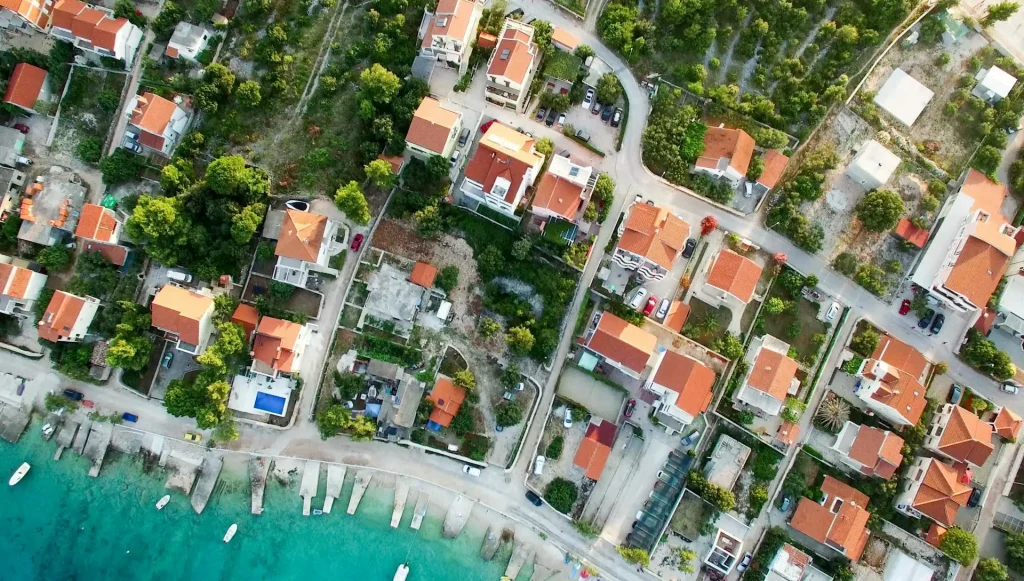Land titles
Indonesia’s growing investment and commercial activity has led to a need for buildings and land. As a result, investors should familiarize themselves with the many sorts of land rights that are recognized and achievable in Indonesia.
Freehold
The freehold title grants you the right to use the land for any purpose for an endless period of time. Only Indonesian persons and certain Indonesian legal entities meet the standards set by the Indonesian government to be given a freehold title.
The freehold title can be transferred to another party. It is the most extensive sort of land rights in Indonesia that may be acquired. As a result, freehold title is the most valuable type of land rights available in Indonesia.
Right to Cultivate
Hak Guna Usaha (HGU) is the right to cultivate territories directly held by the state, such as farming, fishing, and cattle. The HGU duration is 25 years for people and 35 years for legal companies. However, HGU can be extended for an additional 25 (twenty-five) years and renewed for a maximum of 35 (thirty-five) years. HGU can be obtained by Indonesian nationals and legal entities incorporated under Indonesian law and based in Indonesia, such as PT PMA.
Right to Build
- HGB is the right to develop and own buildings on land that is not one’s own for a maximum of 30 (thirty) years, with the option of extending for another 20 (twenty) years. Indonesian citizens and legal companies incorporated under Indonesian law and domiciled in Indonesia, such as PT PMA, are eligible to own HGB
- HGB can be awarded for tate lands, HPL lands, and freehold titles. HGB over state lands and lands with HPL can be renewed for up to 30 years. However, it is vital to note that an HGB over lands with freehold title can be extended forever with a document providing HGB on freehold title.
- HGB over state lands and lands with HPL will be awarded after the MoASP issues a grant of rights decree. In the event of HGB over lands with HPL, the MoASP decree is issued with the approval of the HPL holders. HGB over freehold lands happens when the holder grants the rights, which are accompanied by a deed made by PPAT.
Right to Use
Hak Pakai (HP) refers to the right to use and/or collect products from land directly controlled by the state or land owned by others who have granted the rights and obligations stipulated in the decision upon granting the right by the authorized official or through an agreement with the landowner. HP is classified as:
- HP with a period
Lands eligible for HP with a period include state lands, freehold titles, and lands with the HPL. A HP term on state properties and lands with HPL can be granted for a maximum of 30 (thirty) years, which can be extended for a further 20 (twenty) years and is renewable for up to 30 (thirty) years. The HP period over lands with freehold title can be given for 30 (thirty) years and renewed using a document awarding HP on freehold title. It is important to note that HP with a period may be granted to Indonesian citizens; legal entities incorporated under Indonesian law and domiciled in Indonesia; foreign legal entities with representatives in Indonesia; social and religious organizations; and foreign citizens. - HP (as long as it is used)
Lands eligible for HP (as long as they are used) include state lands, and lands with HPL. HP’s period is granted for an undetermined length as long as it is in use. HP may be possessed by central government institutions; regional governments; rural governments; and representatives of foreign states and international organizations for the duration of its use.
HP over state lands and lands with HPL will be given when the MoASP issues a grant of rights decree. For HP over lands having HPL, the MoASP ordinance must be approved by the HPL holders. HP over freehold land happens when the holder grants rights through a deed issued by the PPAT. - Right to Manage
Hak Pengelolaan Lepas (HPL) refers to the state’s control rights, which are delegated to holders of management rights. HPL can originate from both state and customary land. HPL over state land is given where the primary duties and functions are directly related to land management. HPL holders are granted the authority to designate, use, and utilize all or parts of the land in line with the spatial arrangement plan. They may do it alone or in collaboration with other parties, with the goal of deciding the other party’s annual compulsory rate and/or money in line with the agreement.
A ministerial order determines whether HPL originates on state or customary lands. HPL must be registered at the land office. HPL takes effect when it is registered with the land office. HPL holders are given a certificate proving their ownership of HPL. HPL is encumbered by a mortgage and cannot be utilized as debt collateral. HPL cannot be transmitted to third parties. The release of HPL is made by and in front of the competent authority and must be submitted to the MoASP.
Land titles owned by HPL in collaboration with third parties might be saddled with security rights, transferred, or renounced. If the land titles over the HPL are to be waived, the waiver must be drawn up by and in front of authorized officials and reported to the MoASP. - Right to Lease
A person or legal entity possesses Hak Sewa (HS) over land if they have the right to build on another person’s land in exchange for paying the owner a specific amount of money as rent. This land lease agreement must not include any extortion-related clauses. Rent might be paid once, at specific times, before or after the land is used. The state cannot lease land since it does not own it. Those who can become holders of HS include:- Indonesian citizens.
- foreign citizens who are domiciled in Indonesia.
- a legal entity incorporated under Indonesian laws and domiciled in Indonesia.
- foreign legal entities that have representatives in Indonesia.
- Land Ownership by Foreigners
If foreigners want to do business in Indonesia, they must register a firm called PT PMA, which will be formed under Indonesian law and based in Indonesia. Foreigners can possess the following land titles:- HP can be issued to foreign legal entities with representatives in Indonesia, as well as foreigners.
- The right to own stacked units/hak milik atas satuan rumah susun that is granted to foreigners who have permits in accordance with the provisions of laws and regulations, foreign legal entities that have representatives in Indonesia, or representatives of foreign countries and international institutions that are located or have representatives in Indonesia.
Foreigners who are entitled to live or occupy a home must have immigration documents that comply with the provisions of the laws and regulations. If a foreigner dies, their heirs can inherit the house or residence. If the heir is a foreigner, they must get immigration paperwork in accordance with applicable rules and regulations.
Foreigners can own the following residential houses and the rights that come with them:
House treads on land:
- (HP) or
- 2.HP on property rights, which are managed by a right-to-use agreement over freehold ownership with a deed from the Land Deed Official.
- Flats built on a plot of land:
- HP stands for the right to build on state land.
- HP or building use rights trump land management rights.
- HP means the right to build on freehold land.
Foreign ownership of residential properties is subject to the following restrictions: minimum price requirements, area constraints, a cap on the number of land parcels or apartment units, and allotment for residency or occupancy.
PT PMA, a property developer, is licensed to purchase land in Indonesia for future development. In addition to the amenities, the government shall make it easier for investment businesses to acquire:
- Land titles;
- Immigration service facilities; and
- Import licensing facilities.
Investors may request that the ease of servicing and/or licensing of land titles letter a be granted, extended, or renewed. Land titles can be granted and extended for investment purposes under the following conditions:
- a long-term investment tied to structural changes in the Indonesian economy aimed at increasing competitiveness.
- an investment with an investment risk level that necessitates a long-term return on capital based on the types of investment activities undertaken.
- Investments that don’t require a vast space.
- Investment based on state land title.
- Investments that do not damage a sense of public fairness and do not hurt the public good.
A land title is renewable if the land is used and cultivated in line with the condition, nature, and purpose of the title granted. The granting and extension of land titles that are given all at once in advance and usable may be terminated or canceled by the government if the investment company abandons the land, harms the public interest, uses or exploits the land in ways that are inconsistent with the objectives and purposes of granting the land title, and violates the provisions of land-related laws and regulations.
Foreigners can also purchase property in Indonesia, depending on the type of property:
- Landed buildings (home, office, factory) can be owned by a foreigner or PT PMA, depending on the land status. In terms of land ownership, the Indonesian government has announced a new regulation that allows foreigners to purchase a landed house under the HP category for up to 80 (eighty) years.
- A foreigner or PT PMA can own a condominium, apartment, or office space as long as it is not part of a government-subsidized housing development and the building is classified as HP.




